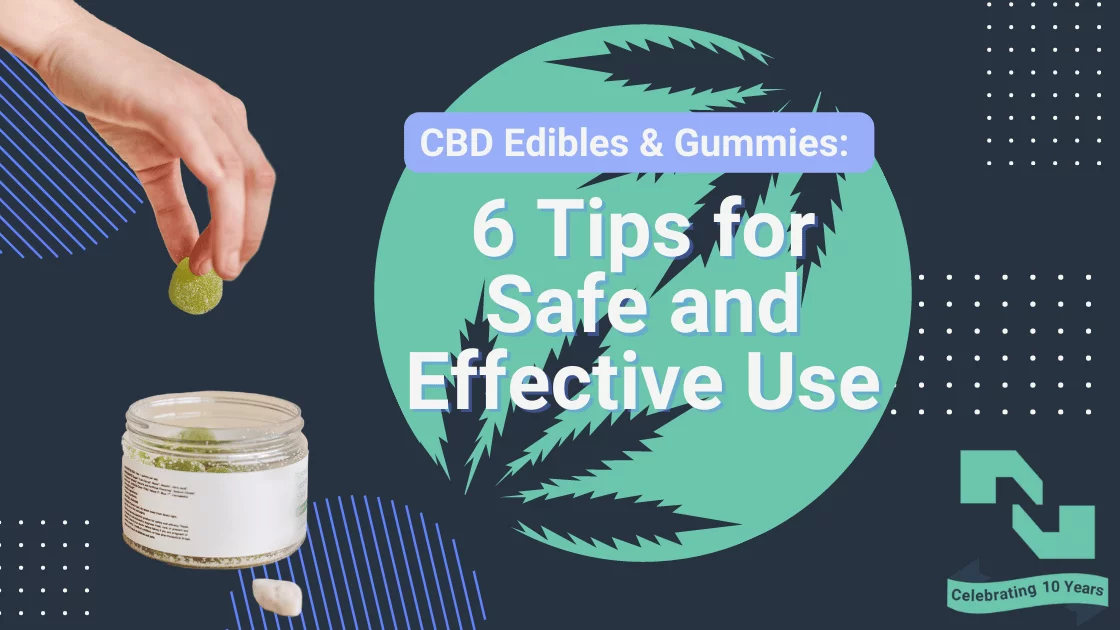The cannabidiol (CBD) hype is a blessing and a curse at the same time for the CBD industry. While we are witnessing a growing mainstream acceptance of CBD, illegal CBD companies have mushroomed everywhere in the United States.
This puts every company’s advertising — illicit or legitimate — on the radar of federal authorities. Understanding CBD regulations and how they affect the market is imperative before advertising your CBD products.
The Sudden Rise of the CBD Market
The global CBD market has reached a multi-billion dollar value in just a few years. Grand View Research projects the market will expand from 2021 to 2028 with a compound annual growth rate (CAGR) of 21.2%. Many attribute the unbelievable growth and popularity of CBD to its purported health benefits.
The Role of the FTC and FDA in CBD Regulation
Is CBD federally legal? CBD is legal, to some extent. Though the enactment of the 2018 Farm Bill has made the cultivation of hemp legal — and thus removed it from the Drug Enforcement Agency (DEA)’s list of controlled substances — there are still restrictions.
Before developing your marketing plan, do thorough research about CBD-related federal and state laws. The two bureaus that work hand-in-hand regulating CBD products are the Federal Trade Commission (FTC) and the Food and Drug Administration (FDA).
- FTC – The FTC has the primary mandate to protect public health and promote competition in the CBD market. Through FTC’s Operation CBDeceit, which was launched last December 2020, they’re hunting down CBD companies who have been advertising their product on their websites and social media platforms with false health claims. For consumers, the FTC has also made it easy for them to receive support concerning fake or questionable CBD products.
- FDA – The FDA protects public health by ensuring the safety and efficacy of consumer products, including cannabis and cannabis-derived products. The FDA is the main bureau that approves new CBD products. According to the Food Drugs and Cosmetics Act:
- CBD shouldn’t be labeled as dietary supplements
- CBD cannot be added to food for humans and animals
Remember that aside from guidelines from the FTC and FDA, your state and local area might have CBD-specific laws imposed. Researching them is vital.
Deceptive Medical Claims and Their Negative Repercussions
The playing field of the cannabis industry is risky, despite how potentially lucrative it is. The FDA and FTC are serious about their crackdown efforts and do more than just send warning letters. Irresponsible CBD advertising can result in:
- Legal Actions and Monetary Sanctions: In the FDA’s report to Congress last year, less than half of CBD products in the marketplace are mislabeled; and thus, reinforces the need for more tight guidelines. Later in 2020, the FTC sanctioned six CBD manufacturers who claimed their products treat serious illnesses to pay fines ranging from $20,000 – $85,000.
- Serious Health Risks to Consumers: In 2017, poisoning due to a fake CBD oil happened in Utah. The illegally sold product didn’t contain any CBD as marketed; instead, it contained a synthetic cannabinoid.
Compliance is the Best Strategy in Marketing CBD products
CBD marketing compliance is all about following the rules imposed by the various governmental agencies. Here are some strategies to curtail enforcement actions when advertising your cannabis products:
- Keep updated with the latest news about CBD regulations. Besides checking the FDA and FTC websites, there are PR firms and cannabis-specific news sources dedicated to bringing you cannabis news. Seek out those whose focuses align with your company, and sign up for their newsletters.
- Hire a reputable third-party laboratory for testing. The health and safety of every consumer who avails of your products are in your hands, so ensure the highest quality and efficacy of your CBD products possible.
- Follow the FD&C Act packaging and labeling guidelines. In Colorado, the FDA has already instructed CBD companies to put a warning statement (i.e., FDA has not evaluated this product for safety or efficacy) to mitigate confusion.
- CBD products must be packaged and advertised in a way that does not attract minors. Cannabis dispensaries can only sell to customers of legal age; there’s no use (and to add, it’s illegal) catering to a younger target audience.
- Only advertise using evidence-facts, as per FTC guidelines. If the medical and health claims are not heavily scientifically supported, then they are already considered as FALSE advertising—it’s as simple as that. If it’s a testimonial you’re posting, it’s best to put a disclaimer for your audience.
- If you received a warning letter, then ask for legal advice. Hopefully, you already employ a lawyer or advisor who specializes in your industry. If not, be sure to seek specialized legal advice.
The Future of CBD Advertising
As we keep watch of how the legalization of cannabis and the regulation of CBD will move (or not) in the Biden administration, it is best to follow the FDA’s packaging guidelines and the FTC’s advertising guidelines accordingly. Concrete guidelines on CBD products are yet to be established as continued research about CBD and its long-term effects are conducted. Be in-the-know with changes to avoid any trouble.
Let us know if you need help researching trends and topics, crafting communications, or securing news spots by contacting us here.



